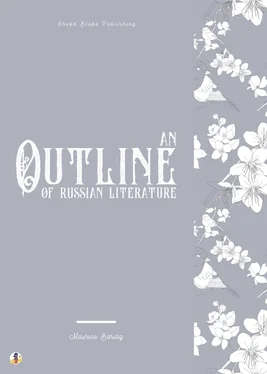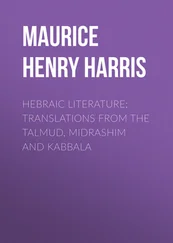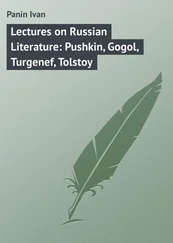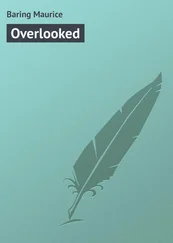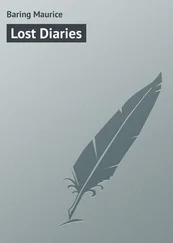Maurice Baring
An Outline of Russian Literature
First published by Sheba Blake Publishing Corp. 2021
Copyright © 2021 by Maurice Baring
All rights reserved. No part of this publication may be reproduced, stored or transmitted in any form or by any means, electronic, mechanical, photocopying, recording, scanning, or otherwise without written permission from the publisher. It is illegal to copy this book, post it to a website, or distribute it by any other means without permission.
This novel is entirely a work of fiction. The names, characters and incidents portrayed in it are the work of the author's imagination. Any resemblance to actual persons, living or dead, events or localities is entirely coincidental.
Maurice Baring asserts the moral right to be identified as the author of this work.
Sheba Blake Publishing Corp.
2288 Crossrail Dr
Atlanta, GA 30349
support@shebablake.com
First edition
Cover art by Sheba Blake
Editing by Sheba Blake
This book was professionally typeset on Reedsy
Find out more at reedsy.com

The chief difficulty which Englishmen have experienced in writing about Russia has, up till quite lately, been the prevailing ignorance of the English public with regard to all that concerns Russian affairs. A singularly intelligent Russian, who is connected with the Art Theatre at Moscow, said to me that he feared the new interest taken by English intellectuals with regard to Russian literature and Russian art. He was delighted, of course, that they should be interested in Russian affairs, but he feared their interest was in danger of being crystallized in a false shape and directed into erroneous channels.
This ignorance will always remain until English people go to Russia and learn to know the Russian people at first hand. It is not enough to be acquainted with a certain number of Russian writers; I say a certain number advisedly, because, although it is true that such writers as Tolstoy and Turgenev have long been naturalized in England, it is equally true that some of the greatest and most typical of Russian authors have not yet been translated.
There is in England no complete translation of Pushkin. This is much the same as though there were in Russia no complete translation of Shakespeare or Milton. I do not mean by this that Pushkin is as great a poet as Shakespeare or Milton, but I do mean that he is the most national and the most important of all Russian writers. There is no translation of Saltykov, the greatest of Russian satirists; there is no complete translation of Leskov, one of her greatest novelists, while Russian criticism and philosophy, as well as almost the whole of Russian poetry, is completely beyond the ken of England. The knowledge of what Russian civilisation, with its glorious fruit of literature, consists in, is still a sealed book so far as England is concerned.
M. B.

For the purposes of the average Russian, and still more for the purposes of the foreigner, Russian literature begins with the nineteenth century, that is to say with the reign of Alexander I. It was then that the literary fruits on which Russia has since fed were born. The seeds were sown, of course, centuries earlier; but the history of Russian literature up to the nineteenth century is not a history of literature, it is the history of Russia. It may well be objected that it is difficult to separate Russian literature from Russian history; that for the understanding of Russian literature an understanding of Russian history is indispensable. This is probably true; but, in a sketch of this dimension, it would be quite impossible to give even an adequate outline of all the vicissitudes in the life of the Russian people which have helped and hindered, blighted and fostered the growth of the Russian tree of letters. All that one can do is to mention some of the chief landmarks amongst the events which directly affected the growth of Russian literature until the dawn of that epoch when its fruits became palpable to Russia and to the world.
The first of these facts is the existence of a Slav race on the banks of the Dnieper in the seventh and eighth centuries, and the growth of cities and trade centres such as Kiev, Smolensk, and Novgorod, which seem already to have been considerable settlements when the earliest Russian records were written. Of these, from the point of view of literature, Kiev was the most important. Kiev on the Dnieper was the mother of Russian culture; Moscow and St. Petersburg became afterwards the heirs of Kiev.
Another factor of vital historical importance which had an indirect effect on the history of Russian literature was the coming of the Norsemen into Russia at the beginning of the ninth century. They came as armed merchants from Scandinavia; they founded and organized principalities; they took Novgorod and Kiev. The Scandinavian Viking became the Russian Kniaz , and the Varanger principality of Kiev became the kernel of the Russian State. In the course of time, the Norsemen became merged in the Slavs, but left traces of their origin in the Sagas, the Byliny , which spread from Kiev all over Russia, and still survive in some distant governments. Hence the Norse names Oleg (Helgi), Olga (Helga), Igor (Ingvar). The word Russian, Rus , the origin and etymology of which are shrouded in obscurity, was first applied to the men-at-arms who formed the higher class of society in the early Varanger states.
The next determining factor in the early history of Russian literature is the Church. Vladimir, Prince of Kiev, married the sister of the Emperor of Byzantium and was baptized; henceforward Christianity began to spread (987-8), but the momentous fact is that it was the Christianity of the East. The pearl of the Gospels, says Soloviev, was covered over with the dust of Byzantium, and Russia was committed to the Greek tradition, the Greek rivalry with the West and was consequently excluded from the civilization of the West and the great intellectual community of which Rome was the centre. This fact is of far-reaching and momentous importance. No less important was the introduction of the Slavonic liturgy, which was invented by two Greek brothers from Saloniki, in the ninth century, who tried to force their Macedonian dialect on all the Slavs, and succeeded in the case of Bulgaria and Servia. A century or so later it reached the Russian Slavs. Through Bulgaria, the Russians acquired a ready-made literature and a written language in a dialect which was partly Bulgarian and partly Macedonian, or rather Macedonian with Bulgarian modifications. The possession of a written language acted as a lever as far as culture was concerned. In the eleventh century, Kiev was one of the most enlightened cities in Europe.
The rulers of Kiev were at this time related to the Kings of France, Hungary, Norway, and even England. The Russian MSS. of the eleventh century equal the best MSS. of Western Europe of the same period. The city of Kiev was a home of wealth, learning, and art. Byzantine artists went to Kiev, and Kiev sent Russian painters to the West. There seemed at this time to be no barrier between East and West. Nothing could be more promising than such a beginning; but the course of Russian history was not destined to run smooth. In the middle of the eleventh century, the foundations of a durable barrier between Russia and Western Europe were laid.
Читать дальше
